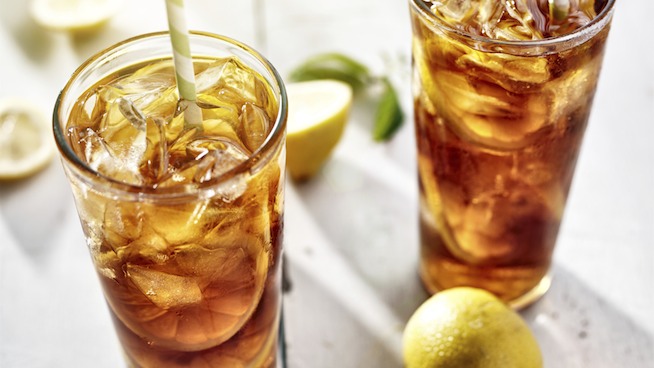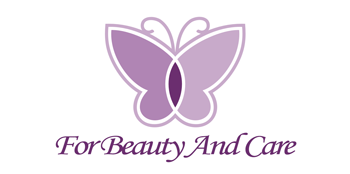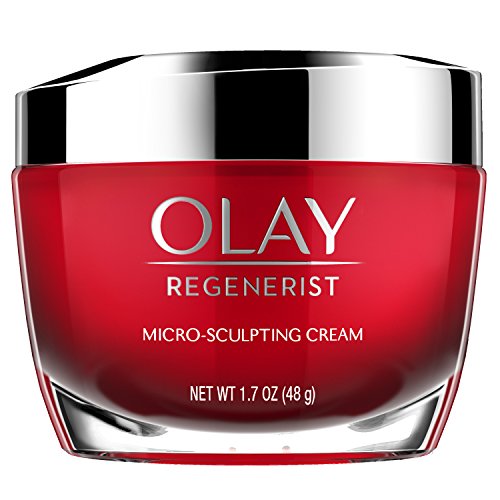| Disclosure: The links on this page are "Affiliate Links" and while these are shown at no costs to our viewers, they generate commissions for our website(s) |
Journey to a Pop-Free Me

I managed to bring that number down over the years to the point where I was allowing myself only one or two a day, but the idea of nixing it completely from my life was almost scary. I remember telling someone once that I’d give up pop, basically, when it was pried from my cold, dead fingers. I was *that* obsessed with it, and I truly didn’t see any real signs of that obsession going away. To me, lowering the number of pops I drank and making sure that I was drinking diet (which might actually be worse than regular) felt like the best victory I could hope for on the matter.
But I think, deep down, there was a part of me at some point that wanted to give pop up because I knew that perhaps the only considerable benefit for my health was that it was, in fact, a liquid, and liquids are things people need to keep living (Dannie, 2015). Other than that, I was pouring this substance into my body that wasn’t necessarily helping me in any way and was, contrastingly, potentially causing me damage. That’s one of the most ridiculous twists of this scenario. Not only is there little to no redeeming quality to pop in regard to my health, but pop has adverse side effects that can worsen my health (Leech, n.d.). Rather than grabbing a bottle of water, a glass of milk, or even a cup of coffee, I was choosing what might have been the least healthy drink on the market.
Even more ironic is the notion that since I hadn’t always chosen diet pop as my primary style, I had to get used to the flavor in order to be okay with it. I can remember, toward the end of my pop-drinking days, having the mental comment surface that I was drinking this stuff that wasn’t good for me when I wasn’t that thrilled with the taste of it. I just liked the caffeine kick of it, I suppose, enough to keep me choosing it.
Then one day I had a realization. My niece, who was somewhere around seven at the time, had been having kidney trouble, and that prompted me to think of future possibilities. At that moment, there was no indication that she’d ever need a serious surgery to treat anything, but what if she did need one someday? What if in the years to come, my baby girl needed a new kidney… and I couldn’t give her one because I’d ruined mine with pop (“Say No to That Diet Soda,” n.d.)? Imagine how that would feel should it come to me finding out that I would’ve been an acceptable donor, but I, instead, would have to look into her big, blue eyes and know that saving her would have to be in someone else’s hands—if another acceptable kidney was found in time—because I couldn’t give up pop. I could lose my girl, knowing she needed help, and have nothing but regret and heartache to offer her.

If that’s not incentive to take better care of yourself, what is?
In addition to that, my own well being was starting to become a bigger deal in my life. I didn’t have the energy that I wanted, and generally, I walked around with a low feeling about me that I labeled “blah.” It was a reason I would give for finally making the decision to give up pop: “I was tired of feeling ‘blah’ all the time.”
So, armed with those details, I took the plunge. I quit drinking pop.
But as wonderful as that decision might be, it wasn’t the easiest one to put into action. After all of the years I’d spent drinking it, my body wasn’t coping well with the sudden deprivation of caffeine. For days, I was sooo tired, and I remember declaring that something simply had to give. If I couldn’t move past that sensation or find a good alternative way to get my caffeine, I probably would’ve ended up drinking pop again because it was such an overbearing sensation. As it turns out, by the way, this is an okay mentality to have since “it’s safe for most healthy adults to consume up to 400 milligrams of caffeine per day” (Peitrangelo, 2014, para. 1), and “it’s best to decrease your consumption slowly” (Peitrangelo, 2014, para. 2) as dropping it suddenly can take a toll on you. Luckily, someone suggested that I start drinking a cup of coffee as a substitute. I did, and the plan of action has been working for what could easily be more than three years now. The closest I know that I’ve come to drinking a pop was realizing that a Tic Tac someone had given me was Cherry-Coke flavored.
Now, some might point out that coffee comes with its own criers to let it go, but a significant difference between the two is linked to what I mentioned earlier. Other than it being a liquid, the health benefits of pop are limited, at best. For coffee, there are a number of given benefits in contrast to the negative aspects of drinking it, and going by the comparisons, the importance of the benefits outweighs the negative. For instance, the notion that it reduces the risk of liver cancer is more swaying than knowing that if I miss a cup, I could get a headache (Gunnars, n.d.). This post isn’t to brag on coffee though, so we’ll just leave the details this general to validate that it’s a step up from pop!
Going back to pop, what have been the benefits for me in regard to giving up drinking it? Well, not only can I take pride in knowing that all the sugars from pop aren’t ruining my kidneys for the sake of my niece, but that sense of “blah” no longer seems to follow me around like it used to. I started exercising, and an interest has been sparked in me to further pursue health and nutrition knowledge. If I could make this one decision to better my health, what was stopping me from doing more? And if that one decision made such a significant change in how I felt, how would I feel with other good decisions to help shape me?

It’s also worth noting that while I’d been drinking diet pop toward the end, making the plunge into the no-pop world of drinks also had a possible impact on my weight. Over the course of the next year (give or take), I seemed to lose what I would estimate to be around ten pounds. While this might sound like an odd detail, it isn’t. According to research, diet pop could make you *gain* weight even though it comes with fewer (or no) calories (Quora, n.d.). The weight loss though could also be due to the fitness interest I mentioned, but even then, it could be argued that this decision to let go of pop instigated it. So, still, the choice can get some credit!
So, was it worth it? Yes! I now know that I’m taking a step in keeping my body functioning properly, and the interest inspired in me has led to some wonderful opportunities and knowledge about fitness and nutrition so that I’m better equipped to be a better me. Sure, there are days when I might go by a Pepsi in a store, and the urge is crazy-strong to start guzzling one. But for the most part, I don’t think about it or miss it too much.
Even something as simple as saying, “I don’t drink pop, but I’ll have water,” is a good feeling because I’m essentially saying, “I climbed that hurdle and won!”
With the confidence, health benefits, and all-around bettering of myself, I can say that this is one of my favorite decisions I ever made.
References
Dannie, M. (2015, October 28). “Are There Any Health Benefits for Soda?” Live Strong . Retrieved from: http://www.livestrong.com/article/493032-are-there-any-health-benefits-for-soda/ Gunnars, K. (n.d.). “Coffee: Good or Bad.” Authority Nutrition . Retrieved from: https://authoritynutrition.com/coffee-good-or-bad/ Leech, J. (n.d.). “13 Ways That Sugary Soda is Bad For Your Health.” Authority Nutrition . Retrieved from: https://authoritynutrition.com/13-ways-sugary-soda-is-bad-for-you/ Pietrangelo, A. (2014, October 22). “The Effects of Caffeine on the Body.” Healthline . Retrieved from: http://www.healthline.com/health/caffeine-effects-... Quora. (2016, September 8). “The Awful Truth About Diet Soda And Weight Gain, According To Science.” Forbes . Retrieved from https://www.forbes.com/sites/quora/2016/09/08/the-awful-truth-about-diet-soda-and-weight-gain-according-to-science/#1a1088fd462f “Say No to That Diet Soda?” (n.d.). National Kidney Foundation . Retrieved from: https://www.kidney.org/news/kidneyCare/spring10/DietSoda









